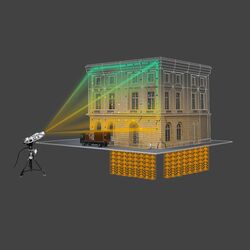The Ministry of Labor sent this week to the social partners its preliminary bill "for a new society of work and employment", intended to set up France Travail which must succeed Pôle emploi in 2024 and coordinate all the employment actors.
Selection of products
To read also
-
 The government unveils a “heat pump” plan targeting 45.000 new jobs
The government unveils a “heat pump” plan targeting 45.000 new jobs
-
 Employment negotiations for seniors: the very last lap
Employment negotiations for seniors: the very last lap
-
 80.000 new jobs to be filled by 2030 in engineering
80.000 new jobs to be filled by 2030 in engineering
-
 Employment of seniors: negotiations are slipping, according to the unions
Employment of seniors: negotiations are slipping, according to the unions
-
 Macron announces “Act II of labor market reform” to achieve “full employment”
Macron announces “Act II of labor market reform” to achieve “full employment”
-
 Social partners want to find an agreement on senior employment by March 26
Social partners want to find an agreement on senior employment by March 26
-
 Dussopt calls for accelerating the application of unemployment insurance reforms
Dussopt calls for accelerating the application of unemployment insurance reforms
-
 Social partners urged by the government to work towards full employment
Social partners urged by the government to work towards full employment
Popular News
-
 Old property prices are still falling but a recovery is taking shape
Old property prices are still falling but a recovery is taking shape
-
 A report on anticipating the effects of +4°C warming reaffirms the need for housing adaptation
A report on anticipating the effects of +4°C warming reaffirms the need for housing adaptation
-
 AI is already revolutionizing businesses in architecture, engineering, construction... according to Autodesk's "State of Design & Make" study
AI is already revolutionizing businesses in architecture, engineering, construction... according to Autodesk's "State of Design & Make" study
-
 The slowdown in the decline in mortgage rates continues
The slowdown in the decline in mortgage rates continues
Publi-editorial
-
 Bjelin: wood and innovation as its DNA
Bjelin: wood and innovation as its DNA
-
 Glass pergola: enjoy its outdoor spaces with elegance and modernity all year round
Glass pergola: enjoy its outdoor spaces with elegance and modernity all year round
-
 A new low-carbon C2S1 glue enters the “Responsible & Sustainable” range offered by PRB
A new low-carbon C2S1 glue enters the “Responsible & Sustainable” range offered by PRB
-
 EduRénov Plan: Rockwool unveils its Guide to successful energy renovation of school buildings
EduRénov Plan: Rockwool unveils its Guide to successful energy renovation of school buildings






